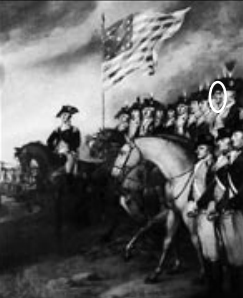In fact, in 1876 eight years after the Fourteenth Amendment had been ratified, and following two Supreme Court cases on that Amendment a noted commentator reported: The Rule adopted by the Supreme Court of the United States in interpreting the Fourteenth Amendment makes it inapplicable to the religious liberty or any other right of the citizen as determined by the state of which he is resident.
The Court in the cases of Paul vs. Virginia and of the New Orleans Slaughter-house (16 Wallace, p. 36), laid down the principle. There is nothing in the last three amendments to the Constitution that reaches the question of religion, and nothing anywhere else in this instrument that places the states under the slightest restraint with reference to this subject; and hence it is true, as remarked by Justice Story [one of the Supreme Court’s most noted legal scholars, appointed by President James Madison in his Commentaries on the Constitution (section 1879), that “the whole power over the subject of religion is left exclusively to the state governments, to be acted upon according to their sense of justice and the state constitutions.” When one understands the intent of these two Amendments, it is not surprising that no previous Court had ever coupled them as did the 1947 Everson Court. † In fact, in 1970, Justice William Douglas openly acknowledged that by coupling the Fourteenth Amendment and the Bill of Rights, the Court had not only usurped state authority over many areas but that it had also created an American revolution that involved the imposition of new and far reaching constitutional restraints on the states. Nationalization of many civil liberties has been the consequence of the Fourteenth Amendment, reversing the historic position that the foundations of those liberties rested largely in state law and so the revolution occasioned by the Fourteenth Amendment has progressed as Article after Article in the Bill of Rights has been incorporated in it [by the Court] and made applicable to the states. The Everson decision represented a disturbing and unprecedented judicial paradigm shift. David Barton - You can't compartmentalize worship. You can't say that you will worship God from 10:05am until 11:10am on Sunday and from 7:00pm to 8:00pm on Wednesday evenings. Worship must transcend every area of your life.
1 Comment
3/13/2011 01:20:45 pm
If you wish to succeed, you should use persistence as your good friend, experience as your reference, prudence as your brother and hope as your sentry. Leave a Reply. |

 RSS Feed
RSS Feed